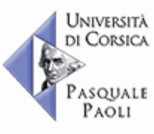University Pasquale Paoli Detailed Introduction:
Introduction
The University of Corsica Pasquale Paoli is a public comprehensive university located in Corsica, France. It is the only university in Corsica and has trained a large number of professional talents for the local and surrounding areas.
Overview
Student size: about 4,700 students.
Faculty: 130 teachers, professors, scholars and other teaching and research personnel.
History
The school was founded by Pasquale Paoli in 1765. It was closed in 1769 because Corsica was sold to France by Genoa. It was re-established in 1981.
Establishment time
Founded in 1765 and rebuilt in 1981.
School strength
Teaching quality: As one of the public universities in France, it follows the education system of the European Bologna process and adopts the European credit transfer system. The degrees awarded are widely recognized in Europe and internationally. The school provides multi-level courses from undergraduate to doctoral level, focusing on cultivating students' comprehensive literacy and practical ability, so that students can better adapt to the needs of social development.
Scientific research level: The school actively carries out scientific research activities and has multiple research projects and scientific research cooperation. For example, it has cooperative relations with institutions such as the Federation for Research on Environment and Society (Fédération de Recherche Environnement et Société) and the Laboratory of Environmental Sciences (Laboratoire Sciences pour l’Environnement), and conducts in-depth research in the fields of environmental science.
Nature of institution
Public university.
Educational philosophy
Emphasis on interdisciplinary education, promote communication and integration between different disciplines, cultivate students' comprehensive thinking and innovation ability, enable students to solve complex problems from multiple angles, and adapt to the needs of modern society for diversified talents.
Focus on practical teaching, through internships, experiments, project practice, etc., let students apply theoretical knowledge to practice, improve students' practical operation ability and ability to solve practical problems, and enhance students' employment competitiveness.
Attach importance to international education, actively promote international exchanges and cooperation between students and teachers, encourage students to participate in international academic projects and exchange activities, broaden students' international horizons, and cultivate talents with international competitiveness and cross-cultural communication ability.
Key laboratories and disciplines
Key laboratories: The school's Corti Fab Lab is an open collective creation laboratory that provides a platform for innovative practice for students and researchers, promotes cooperation and communication between different fields, and promotes the development of scientific and technological innovation and cultural and creative industries.
Key disciplines:
Literature, Language, Fine Arts and Social Sciences: This department has recently undergone a major renovation, providing students with a better learning and research environment. It covers a number of majors such as history, art history, archaeology, literature, philosophy, sociology, linguistics, and performing arts, aiming to cultivate students' professional qualities and research capabilities in the fields of humanities and social sciences.
Natural Sciences and Technology: It has majors such as mathematics, physics, chemistry, and computer science, focusing on cultivating students' scientific thinking and experimental skills. Among them, the research in water resources, renewable energy, mathematical modeling and other aspects has certain characteristics, providing technical support for local economic and social development.
Environmental Science: Relying on relevant laboratories, we carry out research on water resources, ecological environment, sustainable development and other aspects in the Mediterranean region, cultivate students' professional knowledge and skills in environmental monitoring, assessment, protection and governance, and contribute to addressing global environmental issues.
Department
The school has the following main departments:
Faculty of Literature, Language, Fine Arts and Social Sciences
Faculty of Natural Sciences and Technology
Faculty of Life Sciences, Health, Agriculture and Environment
Faculty of Law, Economics and Management
Ranking
In the 2024 ranking of master's degree graduation rates of French public universities, the University of Corsica ranks 6th.
Expenses
As a national comprehensive university, the University of Corsica is free of tuition. Students only need to pay a small registration fee. The annual living expenses in France are between 4-6 The tuition fee is about RMB 10,000, including transportation, telephone charges, food expenses, various insurance premiums, etc.
Campus
Campus distribution: The main campus is located in Corte, Corsica. In addition, there are branch campuses in Ajaccio, Bigulia and Carges. Each campus has convenient transportation and provides convenient learning conditions for students from different regions.
Teaching facilities: The campus is equipped with modern teaching facilities, such as libraries, laboratories, computer rooms, etc. The new university library opened in 2016 provides students with advanced learning conditions. In addition, the school also pays attention to the construction of the campus environment and creates a green and comfortable learning and living space, such as the Grimaldi campus located in the center of the campus, which is a pleasant green space.
-
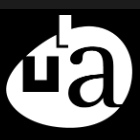
University of Angers
-
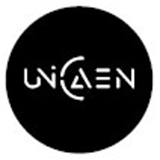
University of Caen Normandy
-

University of Bordeaux
-
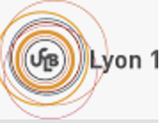
Claude Bernard University Lyon 1
-
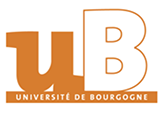
University of Burgundy
-

CY Cergy Paris University
-
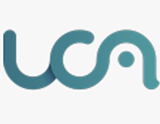
Clermont Auvergne University
-
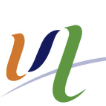
University of Artois
-
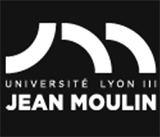
Jean Moulin University Lyon 3
-

University of Franche-Comté
-

Mesoamerican University
-

Istmo University
-

Mariano Galvez University of Guatemala
-

Regional University of Guatemala
-

Galileo University
-

Francisco Marroquín University
-

Rafael Landívar University
-

University of the Valley of Guatemala
-

University of San Carlos of Guatemala
-

Technological Institute of Tlaxcala Plateau
-

Golfo University
-

Technological University of South Sonora
-

Technological University of Huejotzingo
-

Tizimín Institute of Technology
-

Chilpancingo Institute of Technology

